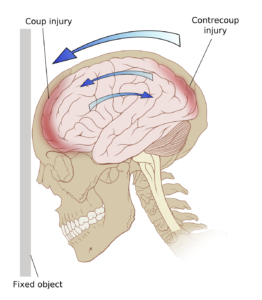Disease vs syndrome
A disease is a specific medical condition that affects the body and can be diagnosed and treated, while a syndrome is a collection of symptoms and signs that occur together and characterize a particular illness or condition.
A disease is caused by a specific underlying problem, such as a bacteria, virus, or genetic mutation, that can be identified and targeted by treatment. For example, tuberculosis is a disease caused by the bacterium Mycobacterium tuberculosis and can be treated with antibiotics.
A syndrome, on the other hand, is a collection of symptoms and signs that occur together, but the underlying cause may not be known or may be multiple. For example, Down syndrome is a genetic condition that is characterized by a specific set of physical and cognitive features, but the underlying cause is a genetic mutation or extra copy of chromosome 21.
Another difference between diseases and syndromes is that a disease often has a specific diagnosis, treatment, and prognosis, while a syndrome does not have a specific diagnosis but rather a collection of symptoms and signs that can be caused by different underlying conditions.
It is important to note that some conditions can be both a disease and a syndrome. For example, diabetes is a disease caused by a problem with insulin production or insulin resistance, but it can also be considered as a syndrome because it is characterized by a collection of symptoms such as frequent urination, excessive thirst and weight loss.
Disease vs disorder
The terms “disease” and “disorder” are often used interchangeably, but they can have slightly different connotations.
A disease is a specific medical condition that affects the body and can be diagnosed and treated. A disease typically has a specific cause or causes, such as a bacteria, virus, or genetic mutation, that can be identified and targeted by treatment. For example, tuberculosis is a disease caused by the bacterium Mycobacterium tuberculosis and can be treated with antibiotics.
A disorder, on the other hand, is a disruption or malfunction of a bodily function or process. It can refer to a wide range of conditions, including physical, mental, and emotional conditions. It may also imply that the cause of the condition is not well understood or that there is no known cure. For example, anxiety disorder is a condition characterized by persistent and excessive anxiety, but the exact cause of the disorder is not well understood.
It’s important to note that some conditions can be both a disease and a disorder, or a disorder that then develops into a disease. For example, diabetes is a disease caused by a problem with insulin production or insulin resistance, but it can also be considered as a disorder because it is a disruption of the body’s ability to regulate blood sugar levels.
In summary, the terms “disease” and “disorder” are often used interchangeably, but a disease typically refers to a specific medical condition that has a known cause and can be treated, while a disorder refers to a disruption or malfunction of a bodily function or process that may not have a known cause or cure.
Disease vs illness
The terms “disease” and “illness” are often used interchangeably, but they can have slightly different connotations.
A disease is a specific medical condition that affects the body and can be diagnosed and treated. A disease typically has a specific cause or causes, such as a bacteria, virus, or genetic mutation, that can be identified and targeted by treatment. For example, tuberculosis is a disease caused by the bacterium Mycobacterium tuberculosis and can be treated with antibiotics.
Illness, on the other hand, refers to the state of being unwell or having a feeling of being sick. It can refer to a wide range of physical and mental conditions, including both acute and chronic conditions. Illness can be caused by a disease, but it can also be caused by other factors such as stress, poor nutrition, and environmental toxins. For example, an individual who has a cold may feel unwell, but the cause of the illness is a virus, not a disease.
In summary, the terms “disease” and “illness” are often used interchangeably, but a disease typically refers to a specific medical condition that has a known cause and can be treated, while illness refers to the state of being unwell or having a feeling of being sick. Illness can be caused by a disease, but it can also be caused by other factors.



